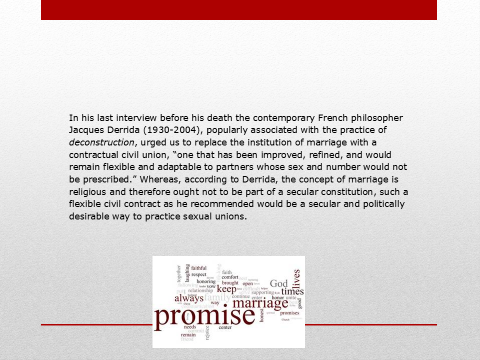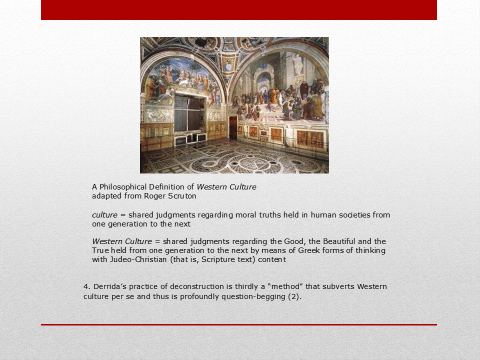The metaphor is short enough to for a quick read. Here it is:
Dr. Schulz and I had a great conversation about this text. Listen here or download below.
| mastermetaphorniet_mixdown2.mp3 |
Here is Dr. Schulz's thoughts on the engaging with this text:
(a) First, let’s think about Friedrich Nietzsche (1844-1900), the human being …
Walter Kaufmann, who almost singlehandedly introduced Nietzsche and his philosophy to the English-speaking world in the 20th Century, cites Stefan Zweig on Nietzsche’s circumstances and his chronic health problems in The Portable Nietzsche:
"Carefully the myopic man sits down to a table; carefully, the man with the sensitive stomach considers every item on the menu … for every mistake in his diet upsets his sensitive digestion and every transgression in his nourishment wreaks havoc with his quivering nerves for days … nothing that stimulates, refreshes, or rests him: only the short meager meal and a little urbane, unprofound conversation in a soft voice with an occasional neighbor (as a man speaks who for years has been unused to talking and is afraid of being asked too much). […]
[And back up in his tiny unheated apartment] a heavy and graceless trunk, his only possession, with the two shirts and the other worn suit. Otherwise, only books and manuscripts, and on a tray innumerable bottles and jars and potions: against the migraines, against the stomach cramps, against spasmodic vomiting, against the slothful intestines, and above all the dreadful sedatives against his insomnia, chloral hydrate and Veronal. … his fingers freezing, his double glasses pressed close to the paper, his hurried hand writes for hours – words the dim eyes can hardly decipher. For hours he sits like this until his eyes burn."
In this same volume Kaufmann observes in connection with 'Thus Spoke Zarathustra' (a writing saturated with biblical allusions that seems to me to be a sustained and blasphemous invitation or dare for God to intervene) that “what Nietzsche needed most was [an editor with] a blue pencil”. I teach my undergraduates that what Nietzsche needed most was a devoted friend, a faithful, articulate Lutheran friend who would stick with him over the long and provide a long-term profound conversation about God in Christ and life in the life He gives us to the full. This, I tell my students, is why they must read Nietzsche: to be prepared and to be on the lookout for 21st-century Nietzsche’s who need their friendship. And, I also explain that they need to read Nietzsche during their university days to begin building an immunity toward his philosophy.
(b) Second, let’s think about Friedrich Nietzsche, the author …
For a rather brief intro to his view of philosophy, see the video at
https://www.bing.com/videos/search?q=Friedrich+Nietzsche+Ubermensch&&view=detail&mid=93855D73D4DF9FD1B1D993855D73D4DF9FD1B1D9&FORM=VRDGAR
If you’re amenable to reading one complete writing of Nietzsche, I recommend spending some time perusing Nietzsche’s The Gay Science. BTW, odd things happen when you google this title, so it’s worth mentioning that the original German title is Die fröhliche Wissenschaft. As Kaufmann explains, Wissenschaft is not what we think of as the natural sciences, but is a way of referring to a disciplined study. The colorful word fröhliche sets the tone for the mode Nietzsche is working in, so to speak. It’s not exactly philosophy as done in the university classroom. As Kaufmann says,
"Thus the title of the book has polemical overtones; it is meant to be anti-German, anti-professorial, anti-academic and goes well with the idea of “the good European” that is encountered in these pages. It is also meant to suggest “light feet,” “dancing,” “laughter” – and ridicule of “the spirit of gravity.”
(It is, then, a bit fröhlicheit to have a university professor by the name of “Schulz” and sometimes known for his gravitas to be providing you this introduction to section 125 of Nietzsche’s book, nicht war?!)
The Gay Science is written as a series of poems and aphorisms. Nietzsche scholars will usually point out that this playful format hides a coherent system underneath it all. I am not so sure that there is a coherent argument here. It’s philosophical pyrotechnics, so you ought to watch out that you don’t get scorched. At any rate, I am now going to take the Master Metaphor of The Madman (Book 3, Section 125 of The Gay Science) as a stand-alone piece for our consideration in keeping with Nietzsche’s aphoristic style.
So, please read Nietzsche’s The Madman in its entirety once or twice. I’ve attached my annotated version of the metaphor below. The Cambridge edition of the complete book is available as a downloadable PDF at www.holybooks.com/.../The-Gay-Science-by-Friedrich-Nietzsche.pdf. Kaufmann’s translation with commentary is what I use. Used copies of that old standby are readily available in hard copy.
For a single volume introduction to Nietzsche and his work, see Walter Kaufman’s The Portable Nietzsche.
(c) Third, let’s think about Friedrich Nietzsche, the patron saint of postmodernism as we experience it …
Dramatic 21st-century videos on Nietzsche: https://www.bing.com/videos/search?q=God+Is+Dead+Friedrich+Nietzsche&&view=detail&mid=7C3D44613F6E1248F3C97C3D44613F6E1248F3C9&FORM=VRDGAR
https://www.bing.com/videos/search?q=God+Is+Dead+Friedrich+Nietzsche&&view=detail&mid=212F35AF932AB4103F7C212F35AF932AB4103F7C&rvsmid=7C3D44613F6E1248F3C97C3D44613F6E1248F3C9&FORM=VDQVAP&fsscr=0
Let me offer this excursus regarding Western culture – the culture for which Nietzsche says that God is dead – from my own philosophical critique of Jacque Derrida’s “deconstruction” of marriage.
1. Here is Derrida’s recommendation for a secularized kind of marriage:
2. Here is my definition of Western culture, the culture which Derrida takes as being dead to God
3. Derrida was committed to postmodernism. His “patron saint” was Nietzsche. You’ll notice that he provides a demonstrably poor, anemic and pitiful notion of marriage as a replacement for what Bonhoeffer identified as “the divine mandate of marriage”. In other words, Derrida dismisses the traditional concept of marriage for no reason other than its biblical origin and offers in return … nothing but his own dogmatic and adolescent replacement.
Here is Dr. Schultz's annotated version of Nietzsche's Madman:
Finally, if we understand the Madman as Nietzsche's diagnosis, what is his prescription? The Übermensch.
Towards the Übermensch (“the Overman, the Super-man, the Transhuman”)
"I teach you the overman. Man is something that shall be overcome. What have you done to overcome him? […] What is the ape to man? A laughingstock or a painful embarrassment. And man shall be just that for the overman: a laughingstock or a painful embarrassment...
Behold, I teach you the overman. The overman is the meaning of the earth. Let your will say: the overman shall be the meaning of the earth! […]
Once the sin against God was the greatest sin; but God died, and these sinners died with him. To sin against the earth is now the most dreadful thing, and to esteem the entrails of the unknowable higher than the meaning of the earth...
What is the greatest experience you can have? It is the hour of the great contempt. The hour when your happiness, too, arouses your disgust, and even your reason and your virtue.
The hour when you say, 'What matters my happiness? It is poverty and filth and wretched contentment. But my happiness ought to justify existence itself.'
The hour when you say, 'What matters my reason? Does it crave knowledge as the lion his food? It is poverty and filth and wretched contentment.'
The hour when you say, 'What matters my virtue? As yet it has not made me rage. How weary I am of my good and my evil! All that is poverty and filth and wretched contentment.' [***]
'Formerly, all the world was mad,' say the most refined, and they blink ...
One has one's little pleasure for the day and one's little pleasure for the night: but one has a regard for health.
'We have invented happiness,' say the last men, and they blink.”
-- Nietzsche, Thus Spoke Zarathustra, Walter Kaufmann, translator
Nietzsche preached the death of God.
The church preaches the dead and resurrection of God. This is our confidence.
The church preaches the dead and resurrection of God. This is our confidence.



 RSS Feed
RSS Feed
